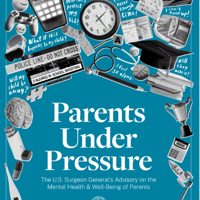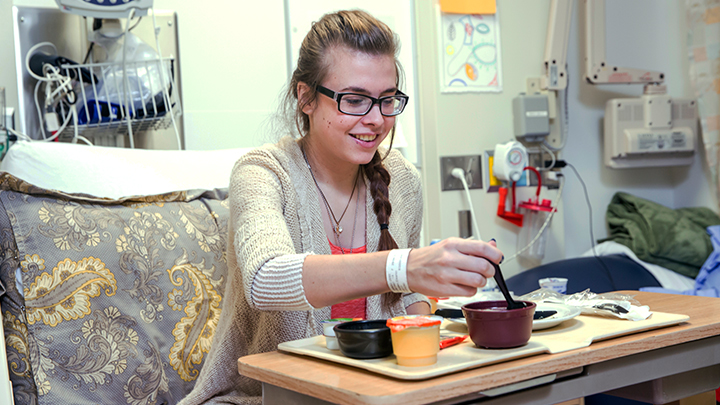Child welfare agencies eliminate funding for children’s mental health program


A program that provides mental health services to kids and teens in the child welfare system in Peterborough is facing closure, and advocates say its loss will put children at risk.
The Therapeutic Family Care (TFC) program is funded by three neighbouring child welfare agencies and serves children across a wide area stretching from Durham Region to Prince Edward County to Haliburton County, according to its website.
All three children’s aid societies that fund TFC, including the Kawartha Haliburton Children’s Aid Society (KHCAS), have decided to pull their support for the program, according to a recent report to the board of directors of Highland Shores Children’s Aid Society (HSCAS).
Belleville-based HSCAS and the Durham Children’s Aid Society are the two other agencies that are ending their funding. A “concrete end date” for the program has not yet been decided, according to the October report by HSCAS executive director Jess Uddenberg.
KHCAS staff have been told the agency’s funding for TFC will come to an end by next March, according to Ruby Taylor, a child protection worker and president of OPSEU Local 334, which represents KHCAS staff. “This will be a great loss for the children, youth and families in our communities,” she wrote in an email.
The closure of TFC will make a province-wide shortage of children’s mental health services even worse, according to Peterborough psychologist Charlie Menendez.
“It is pretty much the only place to get the kinds of services kids and families involved with child welfare really need,” Menendez wrote in an email. He is part of a team of psychologists, psychiatrists and fetal alcohol syndrome specialists who provide consultation services to the program.
He called the impending closure a “travesty,” saying that TFC has been “highly successful.”
“What I see are kids who come into the program … who have been misunderstood and who are angry and distrust parents who begin to open up and trust the caregivers in their lives,” he said in an interview.

The program, which started in 1989, trains foster parents to care for children who have mental health needs as a result of abuse and neglect, according to former TFC program manager Duane Durham. Foster families also get regular visits from case workers trained in therapy techniques, he said.
A major focus is on supporting foster parents to ensure placements can last, so children don’t have to shuffle between foster homes or end up getting placed in more expensive group homes, said Durham, who retired in 2021 after spending most of his career at TFC. “If we take care of caregivers, they’re going to be able to take care of children better,” he said.
The program brings together caregivers in “cluster groups” to support one another with challenges and, up until a few years ago, offered a support line caregivers could call after hours if they needed help, Durham said. “It’s been a very close network. People refer to it as the TFC family.”
Many biological families receive services as well, with an aim to keep children at risk of abuse and neglect from ending up in the child welfare system in the first place, according to Durham. Without TFC doing that prevention work, Durham said he worries more children will end up in the child welfare system.
TFC, which is based in Cobourg, served 228 kids and teens in the year ending March 31, 2024, with expenditures totaling just under $2.1 million, according to its annual report.
Program was “really good,” but wasn’t mandated as a child protection service
None of the three children’s aid societies that are canceling funding for TFC responded to Currents’ questions about the decision.
In September, KHCAS executive director Jennifer McLauchlan told Currents the agency was reviewing its participation in TFC, despite it being a “really good program.”
“Our staff speak very, very positively about the work that they do and the support that they provide for families,” she said in an interview at the time. However, McLauchlan said the program is “not mandated as a child protection service.”
KHCAS has been running deficits in recent years as core provincial funding for the agency decreases. In October, the provincial government announced it no longer had confidence in KHCAS to manage its “growing deficit and operational issues” and installed a supervisor to temporarily take control of the organization from McLauchlan and the agency’s board of directors.

Although programs that focus on mental health treatment are outside of the mandate of the child welfare system, they are exactly what’s needed to address a critical shortage of foster parents across Ontario, according to Durham.
“I think part of the shortage is related to not providing enough support for all foster care,” he said.
Foster parents need help to deal with the challenges of caring for kids with mental health needs, he said. If there were more programs that offered that help, more people would sign up as foster parents, he said.
An acute lack of foster parents and licensed group homes has forced KHCAS to place some kids and teens in unlicensed homes that charge $60,000 a month per child, McLauchlan told Currents in September.
The agency has said soaring residential care costs are partly to blame for its deficit. The amount the agency paid to place kids and teens in residential care rose by 48 percent, or more than $3 million, in the 2023/2024 fiscal year compared to the year before, according to KHCAS’s financial statements.
Recent research suggests TFC has been successful
Recent research has found that many children see improvements to their mental health after involvement in TFC.
One 2022 study published in the Journal of Public Child Welfare examined data from 71 adopted children who participated in the program to see if their mental health symptoms improved over time.
Upon entering TFC, the children in the study showed a wide range of symptoms stemming from abuse and neglect, including irritability, anger, and a tendency to engage in risky behaviour, according to lead study author Jackson Smith. Other symptoms included self harm, low self esteem, hoarding food, and “over-sexualized behaviours,” said Smith, who is a PhD candidate in clinical psychology at the University of Waterloo.
The study found that girls’ symptoms tended to decrease after being in the program, Smith said. “Overall, females improved over time, and eventually ended up under what would be considered the clinical cut off, or within sort of the normal range.” Meanwhile, boys in the study became “more stable over time,” he said.
Girls in the study generally presented more symptoms than boys when they first entered the program, and so had more room for improvement, Smith added.
A second study Smith co-authored, which was published in the journal Development and Psychopathology in 2024, looked at data from 555 children who participated in TFC between 2000 and 2019. It found children tended to feel a greater sense of security in the relationship with their caregivers after receiving TFC services, which led to other improvements in their mental health, according to Smith.
Smith said he is concerned about what will happen to the children currently using TFC services, now that it’s slated to close.
“I think it’s really worrisome,” he said. “It’s really unclear at this point what’s going to happen for these kids.”
The closure will leave a “large gap” in the child and youth mental health system at a time when there are already long waitlists for services, according to Smith.
“With the gap in service there’s just a lot more room for… more difficulty in these kids’ lives,” he said. “They may do poorly in terms of at school and at home, and other environments.”
They’ll have to “fight me to close it down,” former foster parent says
Sylvia Higgs and her late husband Terry joined the TFC program as foster parents in the early 1990s after seeing many “heartbreaks” in the regular foster care system.
Before they joined TFC, Higgs said she had to fight to get services, like autism care, for her foster kids, even paying out of pocket for psychiatric treatment for one young boy for months before the children’s aid society finally reimbursed them.
Despite their best efforts, many of the kids they took into their home west of Peterborough during that time struggled. “We got to know all the local law enforcement officers,” she said.
“There was not a whole lot of support in the home, like we were just flying by our shirt tails.”
The situation was so challenging the couple almost decided to throw in the towel as foster parents. But then they found out about TFC shortly after it started as a pilot project in 1989, she said. They decided to stay on as foster parents and give the program a try.
Through TFC, they received training about things like autism, the effects of sexual abuse, attachment disorders and developmental disabilities, she said. She had never experienced abuse, she said, so it was an “eye opener” to go through those training sessions and begin to understand how the children in her care had been affected by trauma they had experienced.
Joining the program also gave the children in the couple’s care access to psychiatric treatment and other services they needed, Higgs said. She joined a support group for caregivers of children with autism through TFC, too, and one boy she fostered started art therapy.
“All these doors were opening and I thought, ‘Boy, this is awesome. This is the best program in the world,’” she said. “I still feel that way.”
The couple continued fostering for many more years, with the help of TFC services, Higgs said. They took in four more boys after joining the program, which they participated in until the last one aged out of the child welfare system at age 18 around 2011. Higgs still stays in touch with program staff to this day, saying TFC is “like a big family.”
She said she “can’t imagine” the program closing down.
“It just doesn’t make sense financially or … morally,” she said. “They’ll have to go past me, to fight me to close it down.”
link





